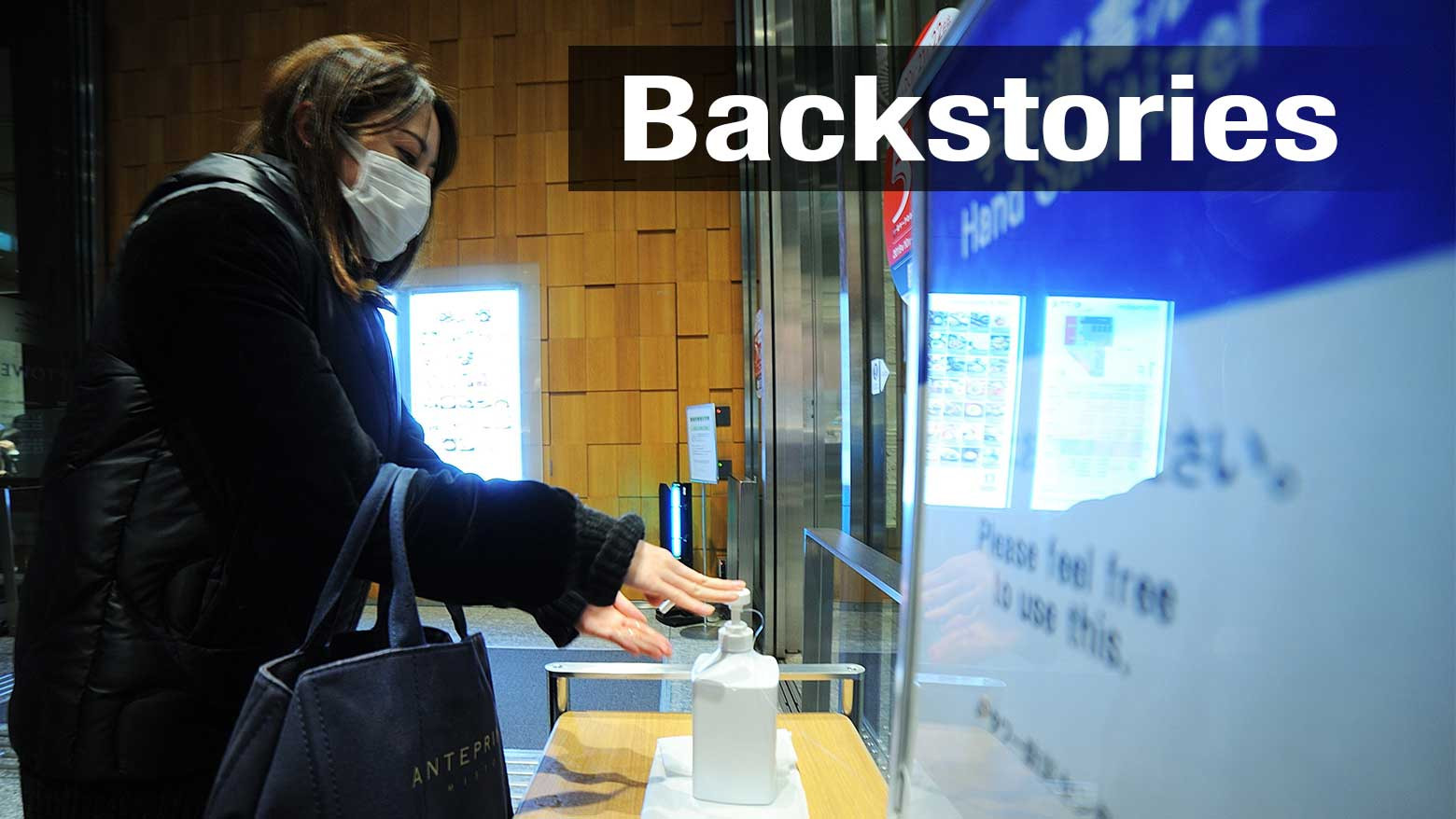Health ministry official infected despite no close contact
The number of cases in Japan stands at more than 500 as of writing, including 454 from a quarantined cruise ship docked near Tokyo.
Anxiety surrounding the virus has been palpable for weeks, with citizens throughout the country wearing face masks and carrying alcoholic disinfectant. But the concern reached new levels on Monday, after news broke of a health ministry official testing positive. The man, who is in his 50s, had been working on the quarantined cruise ship, reportedly helping control traffic as infected passengers disembarked. Worryingly, he was infected despite only working for about 10 minutes and maintaining a distance of at least two meters from the passengers.

Pressure on government grows
On Monday, the health ministry announced a directive instructing all municipalities to expand screenings to include people with symptoms who have not traveled to the Chinese provinces of Hubei and Zhejiang. Hubei is the epicenter of the outbreak, and has close business links with Zhejiang.
The measure comes after infections were confirmed among people who had neither been to the provinces nor come into contact with people who had.
Laboratories, quarantine stations, universities, and companies around the country are now increasing their personnel in an effort to meet the new testing requirements. The health ministry says the expanded manpower will enable screening of an additional 1,050 people a day.
The ministry says it will also provide medical institutions that have adequate screening equipment with the chemicals and materials needed to conduct testing.
National testing standard
The ministry also announced a set of standards to help people decide when to seek medical assistance:
- People who display symptoms of the common cold or a temperature above 37.5 degrees Celsius for four days are advised to contact a local medical center.
- People experiencing severe fatigue or breathing difficulties, as well as those with fever, are advised to contact a local medical center.
- People vulnerable to viruses, including the elderly and those with pre-existing conditions, are advised to seek medical assistance if they have cold symptoms or fever for two days. Pregnant women are also advised to seek early consultation.
Additionally, ministry officials are urging people to stay home from school or work if they display any symptoms of the cold.
Clinical trials on HIV drug
Health experts are working around the clock on treatment. While it will be some time before a vaccine is available for widespread use, there are signs that one already existing drug may be effective at combating the virus.
The director of Disease Control and Prevention Center, Norio Omagari, told NHK World that a team of researchers from his organization is conducting clinical trials on a drug commonly used to treat HIV. Omagari says that some patients have recovered after the tests, adding that his team is expediting the process to verify the effectiveness of the treatment.
Social impact
The outbreak is affecting a wide range of activities in business and culture.
Japan's Imperial Household Agency has canceled Emperor Naruhito's public birthday greetings, which were schedule for February 23. The event would have marked the emperor's first birthday since ascending to the throne and thousands were expected to attend. It is the first imperial birthday greeting to be called off since 1996, when there was a hostage crisis at the Japanese embassy in Peru.

On the business side, Japanese companies with operations in Hubei Province and other parts of China have been struggling to maintain production. The full extent of the impact of the outbreak is difficult to assess but experts say it will prove to be a major setback for the global economy.

